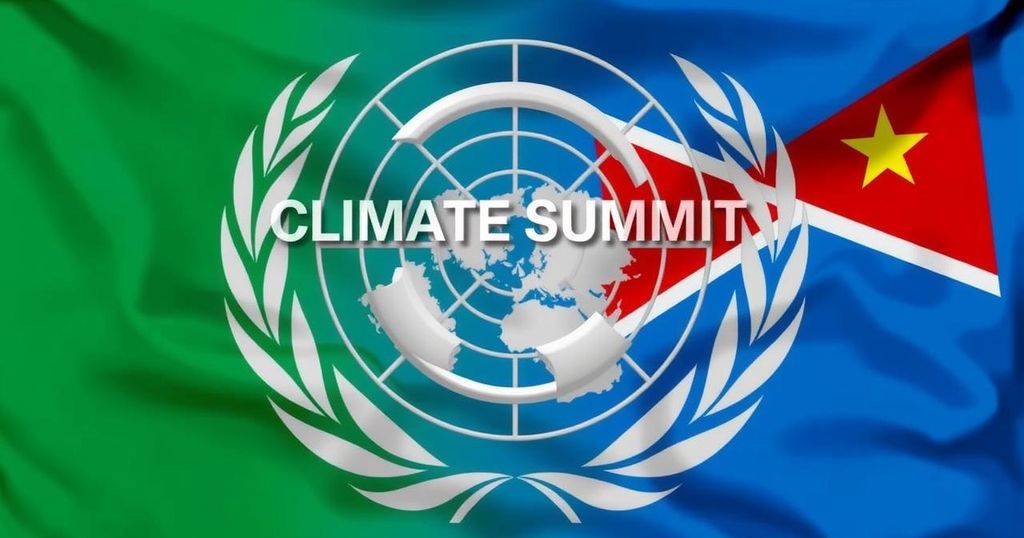Papua New Guinea Declares Boycott of UN Climate Summit, Citing Inefficacy of Negotiations

Papua New Guinea has announced a boycott of the upcoming UN climate summit, criticizing the negotiations for being ineffective and unproductive. Foreign Minister Justin Tkatchenko expressed frustration over the inaction of large polluting countries and the lack of results from previous summits. The country plans to seek bilateral agreements on climate action, arguing that these partnerships could yield far more substantial progress than participation in the COP meetings.
Papua New Guinea has declared its intention to boycott the forthcoming UN climate summit, scheduled for November in Azerbaijan. The country’s Foreign Minister, Justin Tkatchenko, criticized the negotiations aimed at combatting climate change as ineffective, labeling them “a total waste of time” due to the inaction of significant polluting countries. Tkatchenko emphasized the futility of attending such summits when they yield no substantial outcomes, stating, “There’s no point going if we are falling asleep because of jet lag because we’re not getting anything done.” Papua New Guinea, which is home to a significant portion of the world’s rainforests, is particularly vulnerable to the impacts of climate change. Tkatchenko expressed frustration over the ongoing dialogue without tangible results: “We are sick of the rhetoric as well as the merry-go-round of getting absolutely nothing done over the last three years.” He further critiqued the distribution of climate relief funds, alleging that they primarily benefit consultants rather than addressing the climate crisis effectively. This stance aligns with experiences of other nations attending previous COP events, where large polluters have often been criticized for hindering progress towards meaningful climate action. Additionally, Tkatchenko indicated that Papua New Guinea intends to pursue independent climate agreements, citing ongoing negotiations with Singapore as an example. He asserted that such bilateral partnerships could be far more effective than participating in what he referred to as “talkfests” at the COP conferences. As a member of the Pacific Island community, which faces severe threats from climate change, Papua New Guinea’s stance has received support from neighboring nations. Tkatchenko underscored the urgency of addressing the climate issue on behalf of the smaller states that are even more disadvantaged than Papua New Guinea, reinforcing the need for more effective and immediate action than what has been offered in global summits.
The UN climate summits, known as COPs (Conference of the Parties), are annual meetings where nations discuss and negotiate legally binding agreements to combat climate change. Significant progress has been recorded in past summits, notably with the Paris Agreement in 2015, which aimed to drastically reduce global emissions. However, the effectiveness of these meetings has come under scrutiny, particularly due to the perceived influence of major polluters who seem to inhibit more aggressive climate action. Countries like Papua New Guinea, with their rich biodiversity and significant natural resources like rainforests, often find themselves at the forefront of climate vulnerability yet feel underrepresented in these discussions, leading to frustrations expressed by leaders such as Minister Tkatchenko.
In conclusion, Papua New Guinea has taken a firm stance against the UN climate summit, citing a lack of effective action from major emitting nations. The country’s decision to pursue bilateral climate agreements highlights a growing sentiment among smaller nations regarding the inadequacies of global climate negotiations. This move reflects a broader trend of frustration within the international community concerning the pace and effectiveness of climate action, revealing a critical need for substantive commitments and tangible outcomes at COP gatherings.
Original Source: www.straitstimes.com





